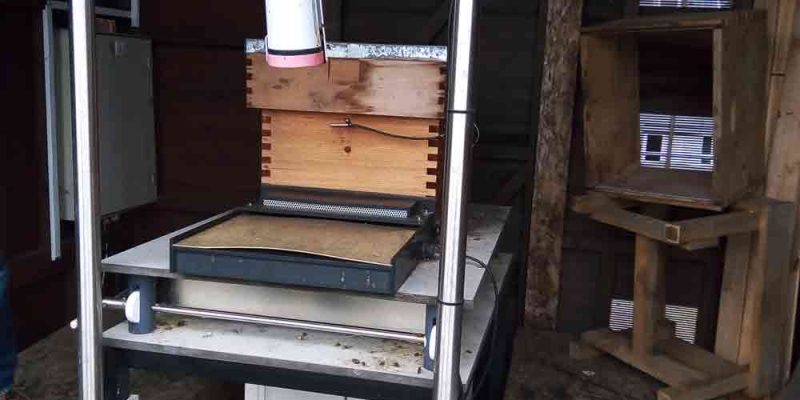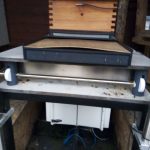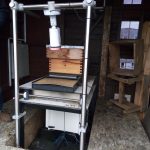At Bournemouth University beehives live on top of two buildings but because of dying trees and lack of nectar there’s been problems in recent years.
A local couple, David and Helga Aldersey, keep hives of European honeybees including three hives on top of roofs at Bournemouth University’s Talbot campus.
The beehives are looked after with students in mind as they choose the queens by docile nature.
Mr Aldersey was happy about the use of the roofs for the hives as: “It’s making use of space that is otherwise not used on buildings.”
Organix, a company that specialises in baby foods, approached the university to collaborate in collecting information on bees.
The university collaborated with Mr and Mrs Aldersey to look after the hives on top of Christchurch house.
They attached high-tech equipment on the hive to monitor the bees and gather information.
But as the building was being refurbished, a wire was cut.
The technology included heat sensing cameras, scales and wires to connect it all.
The monitoring equipment is still in place.
They say it’s become increasingly important to look after the bees as they’re becoming more incapable of looking after themselves.
Mrs Aldersey said: “Environmentally the changes are happening so quickly because of what we have done, that a lot of nature just can’t keep up. Evolving takes time.”
They’re also concerned at the rising number of new beekeepers.
They explained that more beekeepers mean more bees and as they are all trying to take nectar from sources that there’s already so little of it causes problems in the hives.
The couple believe that more can be done to help the bees, even in the university.
Some types of trees can be more helpful to bees as they can produce more nectar than one flower.
Mrs Aldersey explained how the state of the trees around the university deeply saddens her.
They brought forward the idea that the “unused” greenspace should be used for trees or flowers to help the ecosystem.
The couple suggests that to help people could put up more useful trees like lime or sycamore as “a big tree is a field in the sky.”





 Next ‘Love Southbourne’ campaign announced for last weekend of March
Next ‘Love Southbourne’ campaign announced for last weekend of March